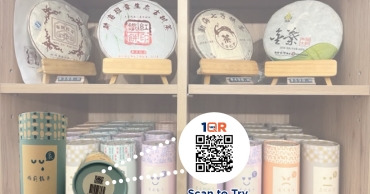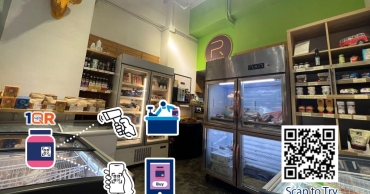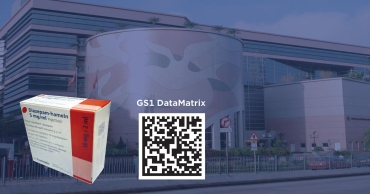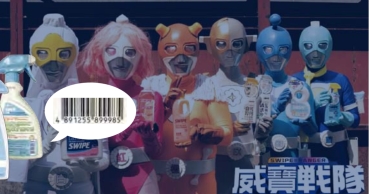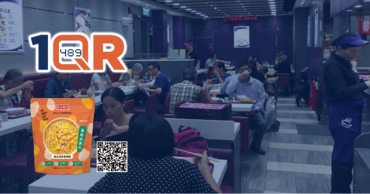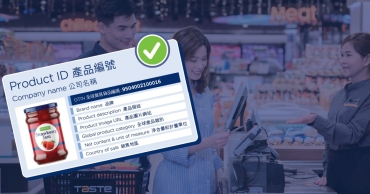為保障GS1條碼的正確使用,本會致力打擊使用未經授權條碼的問題
例如:
使用過期條碼:
企業在GS1會籍過期後仍然使用GS1發出的企業字首作其全球貿易貨品編碼之用;
轉換條碼所有權:
GS1會員將其企業字首的所有權轉售或轉讓予其他企業或機構作全球貿易貨品編碼之用;
偽冒GS1條碼:
任何企業或機構使用非由GS1發出及登記的GS1字首、偽造的GS1字首或由其他GS1會員擁有的GS1字首;
使用未經授權的GS1條碼:
非GS1組織向任何企業或機構發出GS1企業字首。
潛在後果:
如果您從未經授權的來源獲取條碼,有可能需要重新貼標籤或重新包裝產品,或者如果您的產品被零售客戶拒收,則可能蒙受損失。使用未經授權條碼可引致的潛在後果
- 面臨法律訴訟
- 產品需下架,引致潛在金錢損失
- 品牌形象盡失
- 不能在全球電商平臺上上架
對策:
香港貨品編碼協會與各界積極聯手打擊不正當使用條碼的問題,合作夥伴包括全球超過110個GS1組織,以及香港和海外的大型賣家及買家。本會定期收集及鑑別貨品上的條碼,嚴厲打擊上述不正當使用條碼的行為。此外,中國政府亦已頒佈《商品條碼管理辦法》,任何不遵守條碼使用守則的單位均會受到處分及罰款。
如欲了解有關使用未經授權條碼問題的詳情,歡迎致電(+852) 2863 9701或 按下列 “查詢” 鍵填寫查詢表格。
Barcode standards FAQs
What are barcode number unauthorized seller?
Barcode number unauthorized sellers are companies that have bought barcode numbers off other companies and then try to on-sell the numbers.
GS1 has no relationship with these unauthorized sellers, so we can't provide guaranteed information about whether the unauthorized sellers are trying to sell you legitimate, authorised numbers.
We can't know if the barcode numbers they provide are unique against other numbers directly allocated by a GS1 organisation. Also we can't validate these numbers for eCommerce, as we have no means of tracing who the numbers have been assigned to.
What happens if I buy barcode numbers from a unauthorized seller ?
If you buy barcode numbers from a unauthorized seller you do so at your own risk. While all GS1 barcode numbers are legitimate when first created, as soon as a buys a number and on-sells it to you, that number is no longer managed by GS1. This means there is no guarantee that the number will remain unique - which can have significant consequences within the supply chain, particularly in labelling and track and trace.
Where can I get legitimate GS1 barcode numbers?
You can get unique, authorised GS1 barcode numbers from any GS1 member organisation around the world. If you're in Hong Kong, you can get barcode numbers from GS1 Hong Kong. First, you'll need to join GS1.
Each GS1 organisation provides GS1 standards and associated services - including GS1 Company Prefixes and GS1 Global Trade Item Numbers (GTINs or barcode numbers) - to ensure that every one of the millions of barcode numbers in use around the world is unique.
What is the difference between GS1 issued barcodes and barcodes from 3rd party sources? Why use GS1 barcodes instead of 3rd party alternatives
| GS1 barcode numbers | 3rd party / Non-GS1 barcode numbers |
| Get your authenticated GS1 barcodes from GS1 Hong Kong, the ONLY authorised body in Hong Kong to issue GS1 barcodes with “489” country prefix. | Barcodes from unauthorised seller are not authentic and not interoperable i.e. Not globally recognised. |
| A GS1 barcode number is a unique number tagged to your product, allowing you to Identify, Capture & Share your important product information seamlessly. GS1 Hong Kong issued unique barcodes are identifiable in our secured databank and are not recycled or re-sold. | The uniqueness of the numbers cannot be guaranteed as the barcodes may be re-cycled or re-sold to different parties. This could mean that same barcode can be reused on 2 or more different products by different companies, unknowingly. This can cause potential confusion and legal ownership issues. |
| GS1 numbers can be used globally, and are well accepted by major retailers and e-marketplaces like eBay, Amazon, Google Shopping, Tmall. The same GS1 numbers can be used on multiple platforms and enables quick and accurate product searches by consumers. | 3rd party and proprietary numbers would not be recognised globally. This poses the potential risk of not being able to sell in retail stores and on marketplaces and could lead to costs related to product recalls, repackaging and relabelling and low consumer trust. |
| GS1 numbers can help in complying with regulatory requirements (eg. EU1169) such as fulfilling clear product identification and traceability protocols to address food / patient safety, counterfeits, consumer protection issues. | 3rd party and proprietary numbers are not recognised globally and hence, unlikely to help in compliance with regulations. |
| GS1 Hong Kong members could upload their product information to BarcodePlus, a product information repository, for free, which is accessible by their potential buyers from all over the world. | 3rd party resellers do not provide comprehensive support services and cannot back-up the authenticity of their barcodes against GS1 local & global databanks. You may be on your own to resolve any potential issues. |
| Full local support including training sessions, networking events, solutions & consulting services and market surveillances. We also provide advisory support via phone and email. |
What does GTIN Non-Reuse Standard mean?
When a GTIN allocated to a trade item SHALL NOT be reallocated to another trade item. This applies to ALL trade items, regardless of sector.
Why is the need for a GTIN Non-Reuse Standard?
With the industry-driven change, the standard will help companies get unique product identification “right” from the start. Keeping product identification truly “unique” and persistent in both the physical and digital world is needed to support today’s omni-channel consumer experiences. Consistency across the physical and digital world is foundational to the future of commerce.
Trade items (and their associated data attributes) remain in digital/online paths to purchase far longer than they remain in physical-store supply chains. For example, in consumer-to-consumer marketplaces it can be decades. Therefore, GTIN non-reuse is critical in an omni-channel world.
What does it mean to the industries?
- Reduced consumer confusion in the market and in supply chain data exchange systems
- Increased transparency to the consumer
- Better brand visibility online
- Enhanced product traceability with uniqueness of product history
- More efficient after-sale consumer uses of GTIN (Warranty, Maintenance, Repair)
- Improved sales analytics
Does the GTIN Non-Reuse Standard apply to all levels of the packaging hierarchy?
Yes, the Standard applies to ALL trade items in the assigned packaging hierarchy, regardless of sector from 31 December 2018 onwards.
Why individual GTINs can’t be reused?
Today, products are often available for purchase both in-stores traditionally and online requires a valid GTIN for each product listing. It has led the industry to call off the decision of reuse individual GTINs in order to ensure that product identifiers are to be permanent and truly unique. In addition, some sellers have already been enforcing a policy of zero GTIN reuse.
As GTINs are unique and permanent—even in the digital world. Simply stated: products today can be traded “forever”, thus they need identifiers (such as the GS1 GTIN) which last “forever”.
Is there any exceptions?
- If a GTIN has been assigned to an item, which was then never actually produced, the GTIN may be deleted from any catalogue immediately without first being marked as discontinued. In this exceptional case, the GTIN may be re-used 12 months after deletion from the seller’s catalogue.
- Trade items that have been withdrawn from the market and are reintroduced may use the original GTIN if they are reintroduced without any modifications or changes that require a new GTIN as specified by the GTIN Management Standard.
成功案例
新冠疫情數年,植根香港50多年的花王品牌由於深入民心,其家居清潔用品經常被一掃而空、銷售成績斐然;卻沒想到復常不久,港人北上消費蔚然成風,對本地零售及消費品構成挑戰…
疫情持續,家居清潔產品需求大增,威寶(SWIPE)旗下的藍威寶、橙威寶等產品系列的銷量都有顯著增長。公司過往每年都會推出新產品,以多元化組合滲透巿場;唯疫情期間…
以廣東粥品為主打的海皇粥店在高峰期間有超過30間分店,但受疫情嚴重影響,現時在港澳兩地尚餘17間分店。公司其後投入更多資源於外賣生意,包括善用外賣平台…


